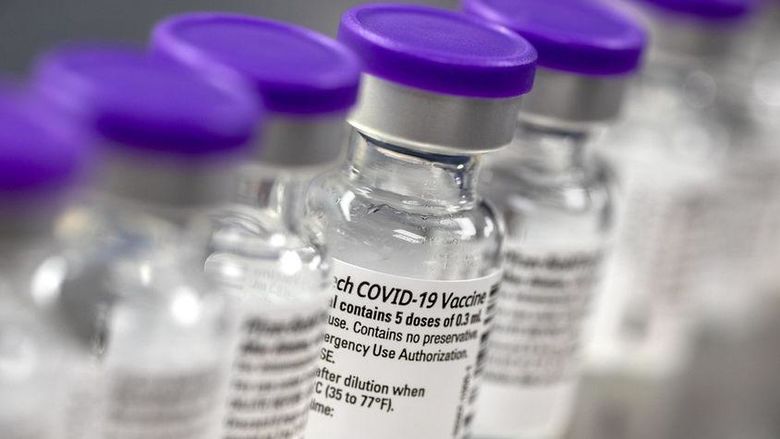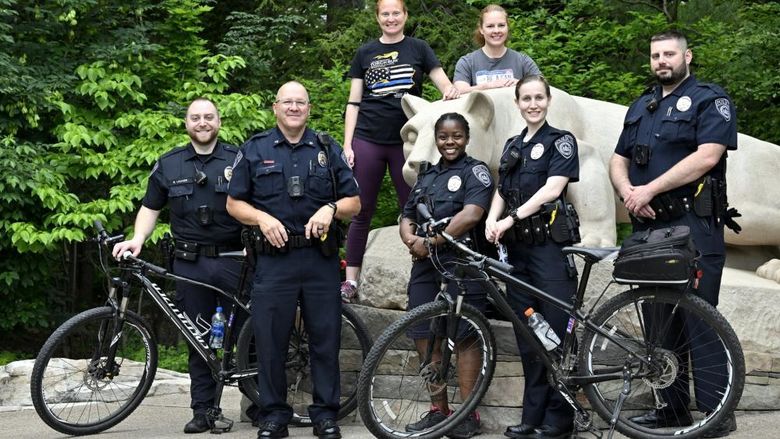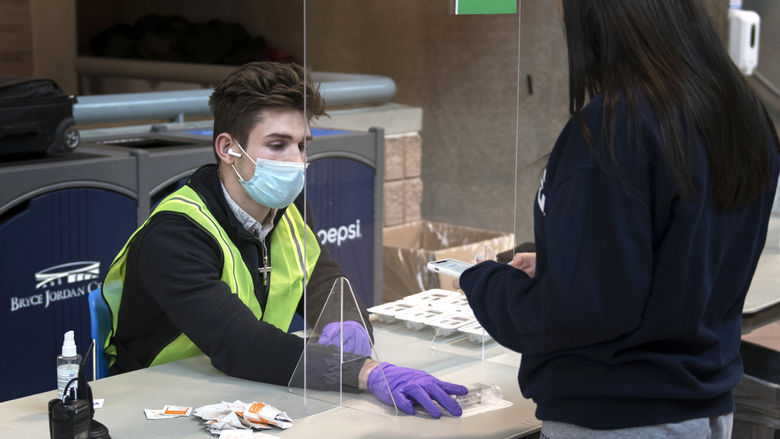UNIVERSITY PARK, Pa. – Penn State University Health Services (UHS) is encouraging students to protect themselves against monkeypox in light of cases in Pennsylvania and nationally. Monkeypox is a viral infection primarily spread through prolonged close contact. It is not a sexually transmitted infection (STI), and anybody can be at risk, regardless of gender or sexual orientation. The most common symptoms of monkeypox include fever, rash and swollen lymph nodes.
UHS encourages all students to learn about monkeypox, which has recently been declared a national public health emergency, and to take necessary precautions.
“We know that students often live in close quarters and spend a lot of time interacting closely with their peers, so we want our community to be aware of the signs and symptoms of monkeypox and steps that they can take to protect themselves and our campus community as a whole,” said Dr. Rebecca Simcik, medical director of UHS. “We are in close contact with the Pennsylvania Department of Health and the Centers for Disease Control and Prevention, and we have a response plan in place for diagnosing, assessing and treating any student who may contract the monkeypox virus.”
Symptoms
According to the CDC, individuals with monkeypox typically get a rash that may be located on or near the genitals or anus and could be on other areas of the body, including the hands, feet, chest, face or mouth. Other symptoms of monkeypox can include fever, chills, swollen lymph nodes, exhaustion, muscle aches and backache, headache, and respiratory symptoms like a sore throat, nasal congestion or cough.
There have been no deaths in the United States caused by the monkeypox virus, and individuals usually heal from the disease on their own without medical treatment. However, individuals with underlying health conditions may experience a more severe case of monkeypox, if contracted.
Transmission and prevention
Since monkeypox is not a sexually transmitted infection (STI), condoms do not guard against it, and it can be spread outside of sexual interactions. It also can be contracted by all people, regardless of sexual orientation or gender identity. It spreads in four main ways:
- Direct contact with monkeypox rash, scabs or body fluids.
- Direct contact with respiratory secretions during prolonged, face-to-face contact or during intimate physical contact, such as kissing, cuddling or sex.
- Direct contact with objects or fabrics that previously touched the rash or body fluids of someone with monkeypox.
- Being scratched or bitten by an infected animal (pets can be infected by monkeypox).
The virus is contagious from the time symptoms start until the rash has fully healed and a fresh layer of skin has formed, which can take two to four weeks.
Protecting yourself
To protect against monkeypox, students and others should avoid close, skin-to-skin contact with people who have a rash. Other precautions include:
- Wash your hands often with soap and water or use an alcohol-based hand sanitizer.
- Do not touch the rash or scabs of a person with monkeypox.
- Do not kiss, hug, cuddle or have sex with someone with monkeypox.
- Do not share eating utensils or cups with a person with monkeypox.
- Do not handle or touch the bedding, towels or clothing of a person with monkeypox.
What to do if you contract monkeypox
UHS advises University Park students who develop symptoms of monkeypox to schedule an appointment with UHS or call the 24/7 Advice Nurse at 814-865-4UHS (4847) and press 3. Commonwealth Campus students should visit their campus health center or other health care provider for next steps and testing.
Students with an active rash or symptoms should self-isolate at home and stay in a separate room away from other people or pets when possible. Students who live on campus will be required to move into an isolation space. Since the isolation period can be up to four weeks, on-campus students should expect to make arrangements to complete their isolation at home. Student Affairs staff will work with individuals who are unable to travel. Because the monkeypox virus spreads through direct contact, faculty members will not be notified if a student in their class contracts the virus and must isolate. Students who must isolate are encouraged to discuss academic concerns with their individual instructor and/or academic advisers.
Faculty and staff with monkeypox symptoms should stay home from work and contact their health care provider for testing or other next steps. Employees who test positive should isolate at home, away from others in their household, and make arrangements to work remotely if possible or utilize sick time until their isolation period has concluded.
Anyone who may have been in contact with a person with a case of monkeypox should monitor their health closely, watch for symptoms and contact UHS or their health care provider to schedule an appointment if symptoms appear.
Students who are concerned about their risk for contracting monkeypox can contact UHS or their health care provider. Students who experience any related bias or harassment may submit a report to Report Bias at equity.psu.edu/reportbias. For individual support related to bias or harassment, students can reach out to these Student Affairs offices: Center for Sexual and Gender Diversity or Counseling and Psychological Services.
University Health Services, a unit of Penn State Student Affairs, continues to monitor the virus and will update the Penn State community as information changes or new information becomes available.
For more information about monkeypox, visit Penn State’s Student Affairs health and wellness website.



